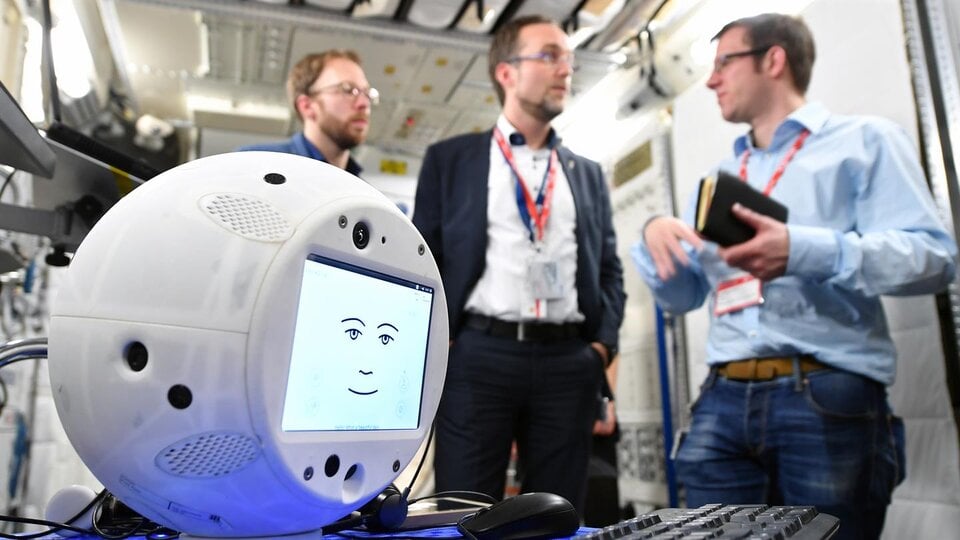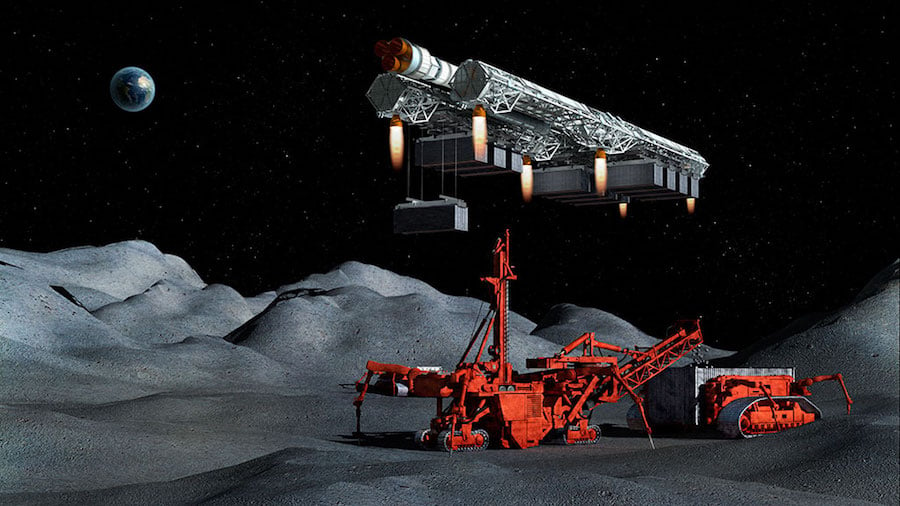For many years, space technology has led the way in human expansion and development. It has helped us understand the cosmos, learn more about our home planet, and develop innovative technologies that have far-reaching positive effects for humankind. Space travel, space-based technology, artificial intelligence, space mining, and the risks and challenges associated with space technology will all be discussed in this article as we look ahead to what the future may hold for these exciting fields of study.
1. The Latest Developments in Space Technology
Exciting breakthroughs in space technology in recent years have greatly increased our capacity for understanding the cosmos and its many components. Among these advancements are:
Advancements in space exploration technology: Thanks to technological developments like reusable rockets and enhanced power systems, space travel is now more feasible financially and logistically than ever before.
Examples of recent space missions and accomplishments: Recent space endeavours and successes include NASA’s Mars Perseverance rover, which landed on Mars in February 2021 and returned with invaluable information about the Red Planet’s habitability and the possibility of life there.
Benefits and implications of recent space technology developments: Improvements in weather forecasting, global communications, and scientific research are just a few of the many benefits of recent advancements in space technology.

2. Space Travel: The Future Possibilities
Space travel is an exciting prospect because it could provide humankind with access to a previously inaccessible frontier. Space flight has many promising prospects for the future:
Commercial space travel and tourism: The aim of companies like SpaceX and Blue Origin is to make commercial space travel available to the general public.
Plans for human colonization of Mars and other planets: Space organisations like NASA are already plotting out strategies for human colonisation of Mars and other planets.
Advancements in rocket technology and propulsion systems: Improvements in technology, such as ion engines and nuclear propulsion, may soon enable interplanetary travel much faster and cheaper.
Interesting facts about space travel:
- The cost of space travel has decreased dramatically over the past few decades, with the cost of sending one pound of material into orbit dropping from over $10,000 in the 1960s to around $2,700 today.
- SpaceX’s Starship, a fully reusable spacecraft, is being developed to carry up to 100 people to Mars and other destinations in space.
- The European Space Agency plans to build a “moon village” on the surface of the Moon by 2030.

3. Space-Based Technology: Current and Future Applications
In addition to the obvious use in interplanetary travel, space-based technology has many other useful uses on Earth. Examples of present and potential uses of space-based technology include:
Satellites and their uses: Satellites have many applications, including but not limited to communication, tracking, and weather observation.
GPS technology and its impact on everyday life: Today, global positioning systems (GPS) are embedded in nearly every facet of our daily lives, from transportation to navigation to warehousing and beyond.
Earth observation and remote sensing: We can keep an eye on the weather, the state of Earth’s natural resources, and other crucial factors with the help of satellites outfitted with high-tech imaging equipment.
Future possibilities for space-based technology applications: Innovations in technology, such as solar power generation in outer space, have the potential to greatly enhance our current capacity to produce renewable energy.

4. The Role of Artificial Intelligence in Space Technology
Artificial intelligence is already playing an important role in space technology, and its role is only set to grow in the future. Some of the ways that AI is being used in space technology include:
Examples of AI applications in space exploration: NASA’s Mars rovers, for example, use AI to make decisions about where to drive and what samples to collect.
The benefits of using AI in space technology: AI can help improve efficiency and reduce costs, as well as aid in tasks that are difficult or dangerous for humans to perform.
Interesting facts about AI and space technology:
- NASA’s Deep Space Network, which communicates with spacecraft throughout the solar system, uses AI to help automate some of its processes.
- The European Space Agency is developing an AI-powered robotic arm that will be used to build structures on the Moon and other planets.

5. The Future of Space Mining
Another area of space technology with the potential to disrupt terrestrial businesses is space mining. Space mining could have many advantages.
Potential resources that can be mined from space: Water, rare metals, and helium-3 are just some of the coveted materials that might be hiding on asteroids and other celestial things.
Current developments in space mining technology: Planetary Resources and Deep Space Industries are just two of the companies working on mining equipment to access these materials in space.
Did you know?
NASA estimates that the total value of resources in the asteroid belt alone could be over $100 trillion.

6. The Challenges and Risks of Space Technology
There are significant risks and challenges associated with space technology, despite the fact that it provides numerous benefits and possibilities. Among the difficulties are:
Space debris and its impact on space travel: Having so much junk floating around in Earth’s orbit is dangerous for humans and spacecraft.
Radiation exposure in space: Protective gear is necessary due to the high amounts of radiation in space that can harm humans.
The potential for space accidents and their impact: Space mishaps, like the 1986 Challenger explosion, can have devastating results.
How space technology can be made safer: Improving safety protocols, creating better protective equipment, and expanding the use of autonomous technology are all ways to lower the risks connected with space technology.

7. The Future of Space Technology: Opportunities and Challenges
There are many exciting opportunities in the field of space technology, but there are also many obstacles that must be conquered. Potential benefits and difficulties of future space technology include:
The importance of continued innovation in space technology: Exploring the cosmos and realising space technology’s maximum potential requires constant innovation.
The potential benefits of space technology for humanity: Technology developed in space may one day change the face of entire economic sectors on Earth and expand our knowledge of the cosmos.
The need for responsible and sustainable space exploration and technology development: To ensure that the advantages of space technology are shared fairly, it is crucial that we conduct future space exploration in a responsible and sustainable manner that minimises our negative effects on the environment.
Conclusion
From the origin of humanity, people have always looked up at the night sky in wonder, questioning what other mysteries may lie beyond our planet. Thanks to the remarkable advancements in space technology, we can finally satiate our curiosity and unlock the secrets of the universe. With space exploration technology evolving at an unprecedented pace, we can venture further out into the cosmos, explore new frontiers and expand our understanding of the universe. But we can’t ignore the risks that come with this new frontier. As we continue to progress, we need to be cautious and ensure responsible and sustainable practices in our exploration of space to make certain that we don’t cause unforeseen damage to our environment or put future generations in harm’s way. By balancing our enthusiasm for exploration with the necessary safety efforts, we can pave the way for limitless opportunities, transforming our world and our future.




